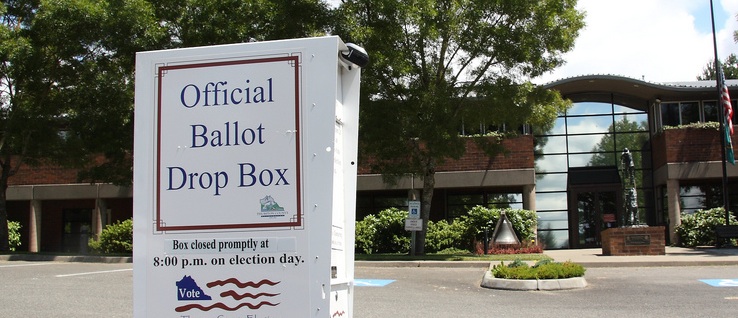The Senate passed a bill Tuesday that could give more weight to ballots cast for the 2016 Washington presidential primary.
Currently, both the Republicans and the Democrats hold caucuses to choose their delegates for the national nominations for president.
Republicans have incorporated the primary results in the delegate selection in the past. However, in 2011, then-Secretary of State Sam Reed canceled the 2012 Washington’s presidential primary.
Under SB 5978, the Republican and Democratic parties in Washington would have to consider the results of the presidential primaries when choosing their delegates. But the parties could choose how much weight to give to the primaries, and could still use the caucus as their main method of selecting a nominee.
 Voters who cast a ballot in the primary would have to choose a party preference, and a record would be available to the public.
Voters who cast a ballot in the primary would have to choose a party preference, and a record would be available to the public.
The bill also moves the primary date up to March. Parties would have until Oct. 1 before a primary year to let the Secretary of State know whether they will participate.
“We’d like to be part of the national debate here on the West Coast so that more candidates will come to Washington state,” bill sponsor Sen. Pam Roach, R-Auburn, said on the Senate floor before the vote, noting that Washington state is second only to California in the number of delegates east of the Mississippi River. “They should be sought after delegates and people here should have their votes courted,” she said.
However, Sen. Maralyn Chase, D-Shoreline, were concerned that having a primary would open the state to a barrage of campaign ads, instead of substantive debate.
“At one time I thought a presidential primary would be a good thing to have. But what we end up with (is) a great deal of money spent on television and political consultants and the grassroots gets nothing,” she said.
Secretary of State Kim Wyman requested the bill, saying that the change will increase participation in the nomination process, which is unavailable to voters who cannot attend on the dates of the caucuses.
The bill passed 36 to 12 and heads to the House for consideration. Senate Democrats split on the issue and the 12 no votes all came from that side of Senate.